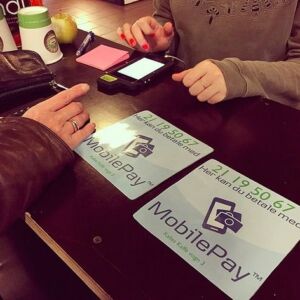News
Danske Bank still losing money but gaining market share with MobilePay
This article is more than 10 years old.
Bank plans to eventually make profit from business users

Business users pay for MobilePay (photo: Flickr/Christian Jensen)
No-one can deny the success of Danske Bank’s easy payment app MobilePay – its name even became the word of the year in 2014.
READ MORE: English word is Danish word of the year
But TV2 News reports that popularity and profitability don’t yet go hand in hand for the product, since the bank still foots the bill for charges relating to the 240,000 daily private transactions.
READ MORE: Easy payment app costs Danske Bank a fortune
With each transaction costing between 0.7 and 1.39 kroner, the annual cost is in the region of 80 million kroner.
Building user-base
Mark Wraa-Hansen, the product head at Danske Bank, explained that this is not a concern for the bank, since its focus is to build the user-base and eventually make money from commercial contracts.
“Of course our goal is in the long-term to make money from the solution. And we believe we will come to do so,” he said.
“We’re building one commercial service after the other and that’s where the profit will come from in the future, when we start to take the market share from card use and especially cash.”
For companies to use MobilePay as a payment solution, different solutions are available and charges apply. For example, MobilePay Business costs the retailer 1 percent of the transaction price up to a maximum of 5 kroner per transaction.










































